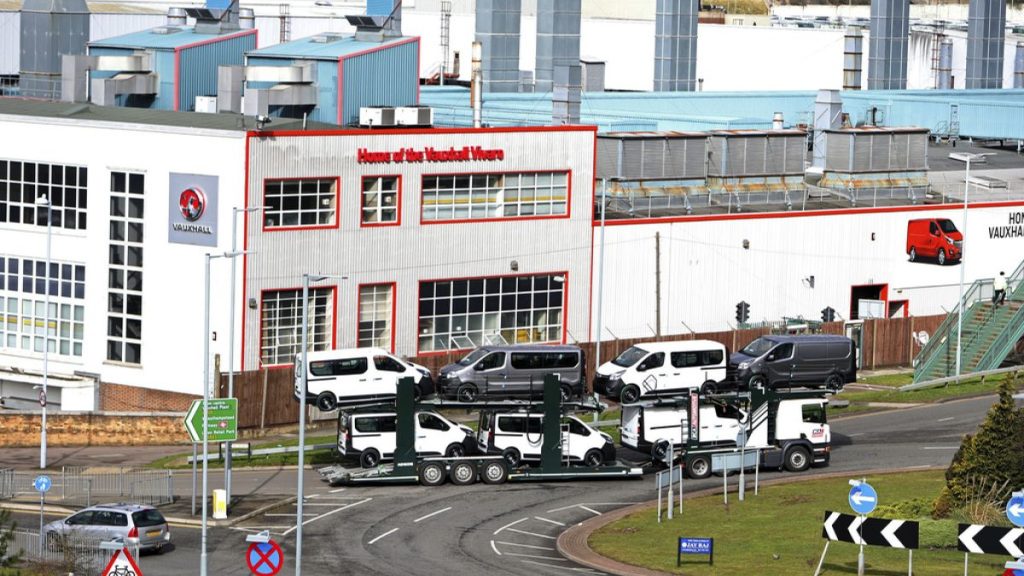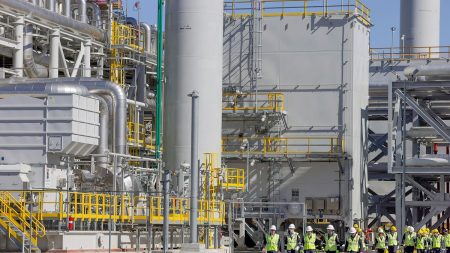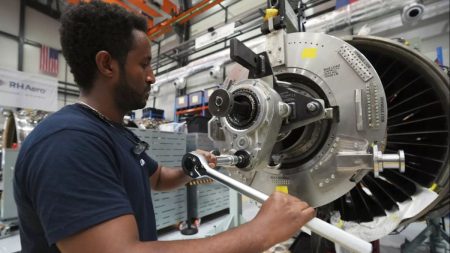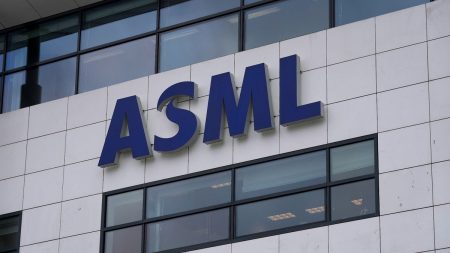Stellantis, the French-Italian car manufacturing conglomerate, is planning to intensify its investment in the Ellesmere Port facility in the UK, positioning it as a dedicated plant for sustainable, all-electric vehicle manufacturing. In a significant move that affects the company’s operations in the UK, Stellantis has announced plans to consolidate its factories, which will notably lead to the closure of its Luton manufacturing site. This decision could potentially result in the loss of approximately 1,100 jobs, as the Luton plant currently produces petrol and diesel vans and was scheduled to start manufacturing battery-electric light commercial vehicles next year. The shifting priorities towards electric vehicle production constitute both a strategic pivot for Stellantis and a challenging transition for the associated workforce in Luton.
The Luton plant has been a cornerstone of Vauxhall manufacturing for over 120 years, now facing an uncertain future due to the changes being initiated by Stellantis. In a recent announcement, the company expressed its commitment to investing £50 million into the Ellesmere Port site, emphasizing its vision to establish an “all-electric, sustainable vehicle hub” in Cheshire. This initiative is part of a broader strategy to transition to a more electrified automotive landscape, aligning Stellantis’s production capabilities with the growing demand for electric vehicles across Europe. They have indicated intentions to transfer significant operations from Luton to Ellesmere Port, which underscores the importance of adapting manufacturing practices to fit the future direction of the automotive industry.
The announcement has sparked discontent among workers and unions, particularly Unite, who criticized the proposal as a “slap in the face” for Luton workers. The union expressed deep concerns over the implications for Luton, a site steeped in a rich legacy of vehicle manufacturing. Unite’s leadership has made it clear that they are prepared to advocate fiercely for their members, calling on both the company and government for support to preserve jobs and maintain vehicle manufacturing in the region. They emphasized the necessity of job security for the affected workers and urged efforts to facilitate a smooth transition for those impacted by the closure of the Luton facility.
Stellantis’s decision reflects a broader trend within the automotive industry in Europe, where traditional car makers are grappling with shifting consumer preferences and regulatory pressures that favor electric vehicles over internal combustion engine models. The company’s challenges resonate with a larger battle facing manufacturers in the transition towards more sustainable options, with sluggish sales of EVs compounding their difficulties. Stellantis, like many peers, is navigating this precarious landscape while attempting to balance operational efficiency with workforce realities, further complicated by rising costs and supply chain issues that have plagued the sector.
Since investing heavily in the Ellesmere Port facility in 2021, where it allocated £100 million to convert the site for battery-electric light commercial vehicle production, Stellantis has aimed to create a benchmark for EV manufacturing within the group. Ellesmere Port holds the distinction of being Stellantis’s first facility dedicated solely to battery-electric vehicles, which illustrates the company’s commitment to transformation in response to market demands. Such investments signal Stellantis’s strategic vision to not only lead in production capacity for EVs but also to establish robust infrastructure that supports the growing trend for sustainable transportation solutions.
In summary, Stellantis’s consolidation plan, while pivotal for future growth in electric vehicle manufacturing at its Ellesmere Port site, raises significant concern for Luton’s workforce and the historical significance of car production in the area. The intended transformation toward a greener manufacturing paradigm reflects broader industry challenges but also instigates pressing conversations on job security and economic impacts on local communities. The path forward will require balancing technological advancement with workforce support, ensuring that as the automotive industry progresses into a sustainable future, it does not leave behind the communities that have supported it for generations.














